
For the last 20 years, I’ve written about road trips that simply run from point A to B, but this is a road trip that zig zags. We begin by pointing our car north-west of Sydney to find Bells Line of Road. If you’re a car enthusiast – and you might be, reading Open Road – you’ll relish this leafy, winding route up the backside of the Blue Mountains.
Our first stop is Bilpin, a town famous for its apple orchards, to grab a refreshing apple juice. It’s an ideal spot to stretch your legs and admire the avenues of deciduous trees shedding their leaves, creating a red and orange carpet along the road in autumn.
At Mount Tomah on Bells Line of Road, we find the Blue Mountains Botanic Garden, a lush sanctuary perched more than 1000 metres above sea level. This garden is a hidden gem and showcases a stunning array of native and exotic plants spread across 252 hectares. As we stroll through the beautifully landscaped grounds, we marvel at the diverse collection of plants, from vibrant wildflowers to towering trees. The crisp mountain air and spectacular views add to the garden’s unique ambiance. Highlights include the Rock Garden with its alpine plants, and the Formal Garden, featuring meticulously manicured lawns and colourful blooms.
We next zig along the Darling Causeway over to Blackheath and down to The Hydro Majestic Hotel, an iconic landmark in the Blue Mountains. This historic hotel, with its grand architecture, sweeping views and stunning Art Deco and Nouveau interiors, exudes an old-world charm that transports you back to a bygone era of elegance and sophistication.
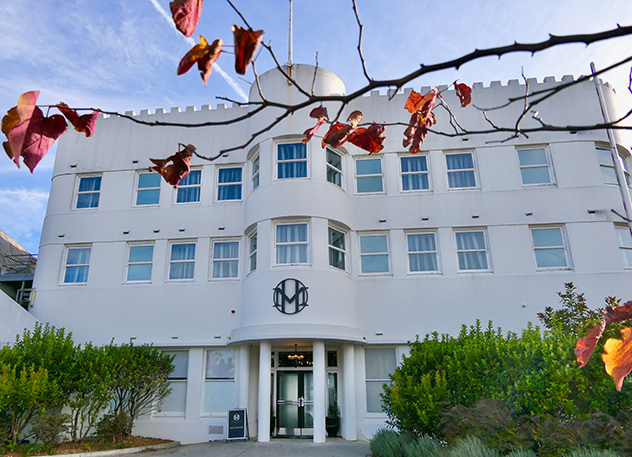
Hydro Majestic Hotel
Originally opened in 1904, The Hydro has been meticulously restored, preserving its rich heritage while offering modern luxuries. As you walk through its opulent halls and down the lounge gallery known as Cats Alley, you can almost hear the echoes of the glamorous parties and distinguished guests who graced its rooms in the past. The hotel’s stunning location, perched on a cliff edge, provides breath-taking vistas of the Megalong Valley, making it a perfect destination for those, like us, seeking both relaxation and a touch of history.
As this is a steam train infused road trip, we lunch at the adjacent Boiler House Restaurant. This unique eatery, housed in a restored industrial building, evokes the theme of our journey with its vintage charm and hearty fare.
The following morning we zag over the Darling Causeway from neighbouring Mount Victoria to join Bells Line of Road on the way to Lithgow. Lunch is at The Lithgow Tin Shed, a former mechanical workshop transformed into a funky café. We can’t resist the locally smoked trout, beautifully paired with a crisp glass of See Saw Rosé from a vineyard near Orange.
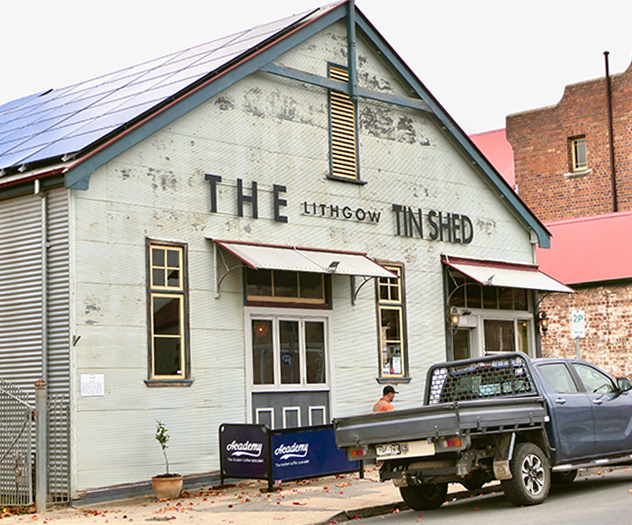
Lithgow Tin Shed
Next stop is the Lithgow Small Arms Museum for a squiz into Australia’s industrial and military heritage. Established within the historic walls of the original Lithgow Small Arms Factory, this museum is a treasure of meticulously preserved firearms, machinery, and historical artefacts. The factory, which opened in 1912, played a crucial role in equipping Australian soldiers through two world wars and beyond. Indeed, many locals I chat with have some family connection to the now French-owned factory, which still produces small arms.
Wandering through the museum, you’ll find an impressive array of weaponry, from early 20th century rifles to more modern firearms. The museum highlights the technological advancements, precision engineering and craftsmanship that defined the era. Yet, the visit for me is tinged with despondency over the decline of manufacturing in this country. With the tyranny of distance, Australians had to become self-reliant or perish, and those plucky Lithgownians could reverse-engineer anything. What happened to us? Volunteer guides Kerry and Donna mention the factory owners are now trying to squeeze the museum out. Let’s just hope Lithgow fights tooth and nail to keep their proud heritage in its spiritual home.

Lithgow Small Arms Museum
At the Lithgow State Mine Heritage Park, we meet affable volunteer guide, John Zeni, to be transported back in time for a glimpse into the coal mining history of the region. Once a hive of activity, the site has been transformed into a facility that serves both as a tribute to the miners who laboured under tough conditions and as an educational resource for visitors keen to understand the realities of coal mining life.
The centrepiece is the State Mine Gully, where the original mine operated from 1907 until its closure in 1964. The museum showcases a collection of mining equipment and memorabilia, dramatically illustrating the evolution of mining technology over the decades. Interactive exhibits deepen the experience, offering fascinating stories of the miners’ daily grind, their camaraderie, and the challenges they faced. Indeed, the bathhouse is rather moving. This isn’t just a walk through a mining museum; it’s an immersion into Lithgow’s heart and soul, preserved for future generations to appreciate.
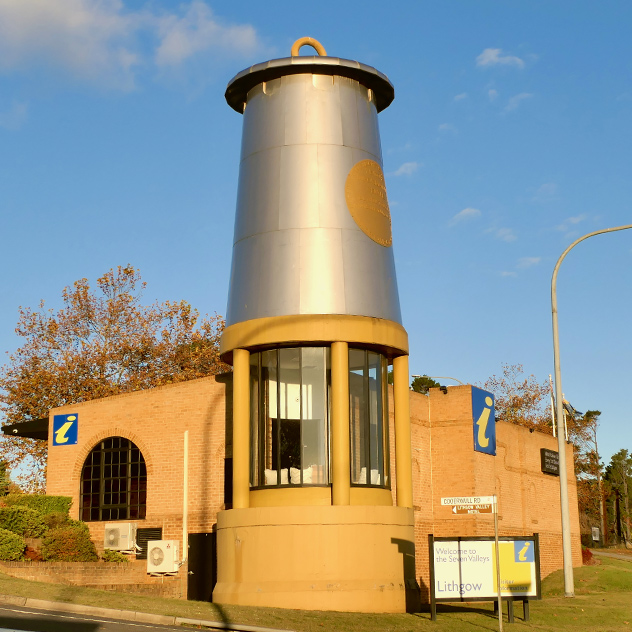
Lithgow Miner's Lamp
We then zag for 35 minutes to Capertee and meet Craig ‘Crafty’ Field at Craft Works Distillery. This boutique distillery prides itself on producing small-batch, artisanal spirits that capture the essence of the surrounding landscape. Every bottle tells a story of dedication, passion and attention to detail. With more driving ahead of us, it’s just a shame we can only try a thimble of his flagship hooch.
A stone’s throw from Craft Works is Pearson’s Lookout. This offers a breathtaking panorama of the magnificent Capertee Valley that ranks among the largest canyons in the world. From this vantage point, you can appreciate the vastness and beauty of this region, with its sprawling landscape and rugged cliffs stretching as far as the eye can see.
Zigging back to Lithgow, we settle into the aptly named Zig Zag Motel for the evening, having shooed away two workers in high-vis vests drinking cans of beer and smoking outside our room. Once inside, the room is laboratory clean and surprisingly smartly finished. Moreover, the location provides easy access to the area’s attractions, including the famous Lithgow Zig Zag Railway and the purpose of our road trip. It recently celebrated its one-year anniversary since reopening.
Post brekkie, we zag back up Bells Line of Road to Clarence Station. Before reaching it, enthusiasts might want to make like Moses and take the short dirt track off Bells to Mount Sinai. Here they’ll find a secret platform that allows a close-up view of the locomotive climbing the hill.
When opened in 1869, the Lithgow Zig Zag rail line was no mere track but a marvel of engineering and a bold attempt to conquer the mountain’s steep flanks, winding through the landscape with an audacious charm that’s rare in railway design. It was a solution as ingenious as it was necessary, where trains chugging up and down the mountains had to navigate a complex system of reverse movements – like a giant steel caterpillar folding back on itself, all puff and steam, battling gravity.
It covered a vertical difference of 170 metres and was quite the engineering feat for its time.
The line included three sections – the Top, Middle and Bottom Roads – each presenting its own set of challenges in the form of tight curves, short tunnels, and architecturally stunning sandstone viaducts. Yet, for all its beauty and engineering prowess, the Zig Zag was a logistical nightmare. The process of reversing trains caused delays and a fair share of mishaps and near misses that wore on the nerves of anxious passengers in their copious skirts and sensible tweed suits.
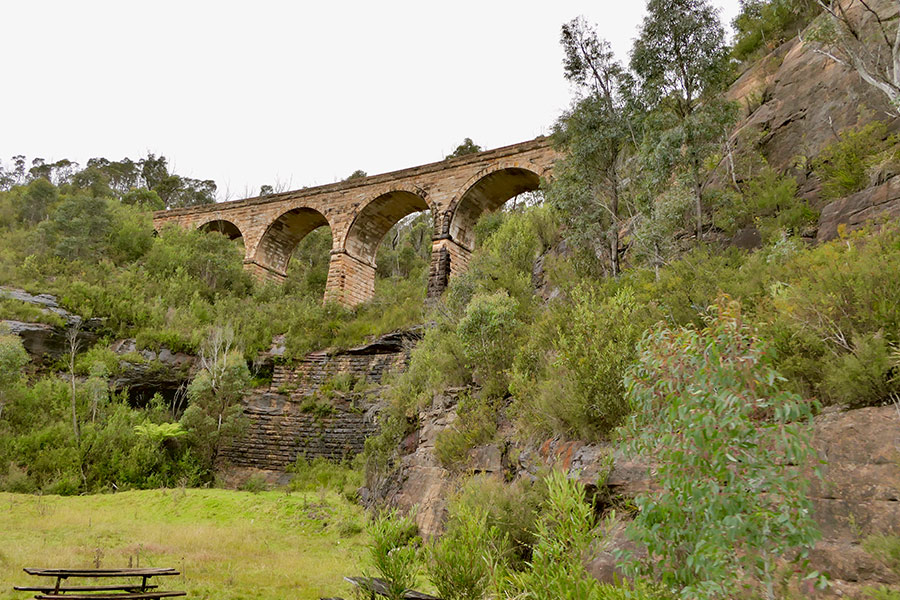
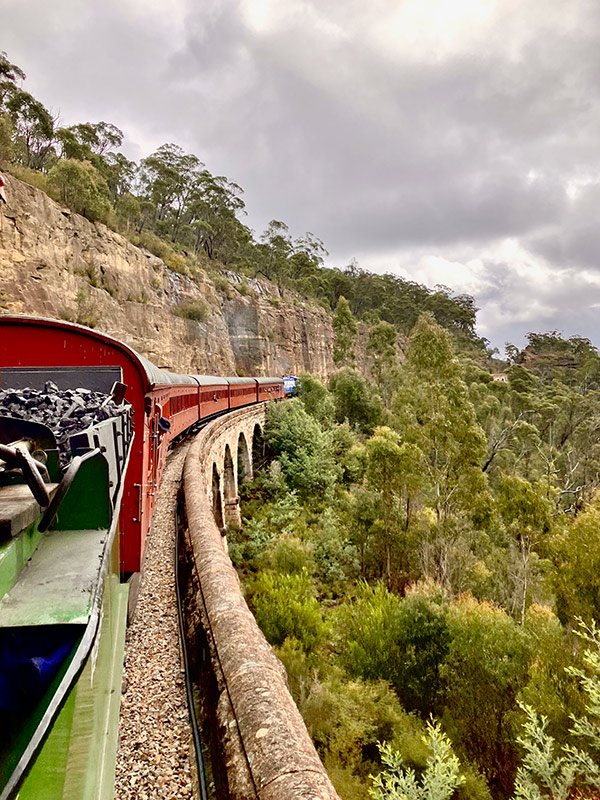
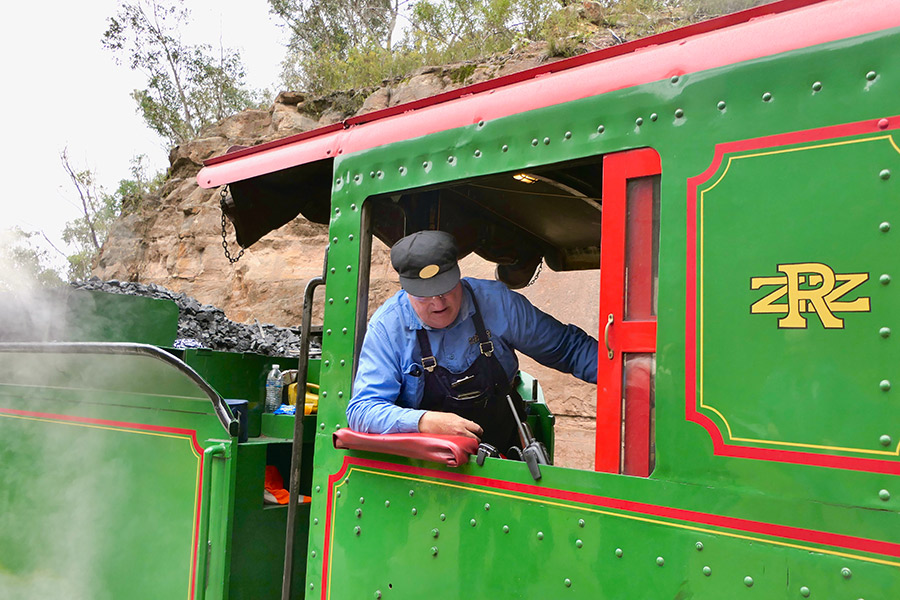
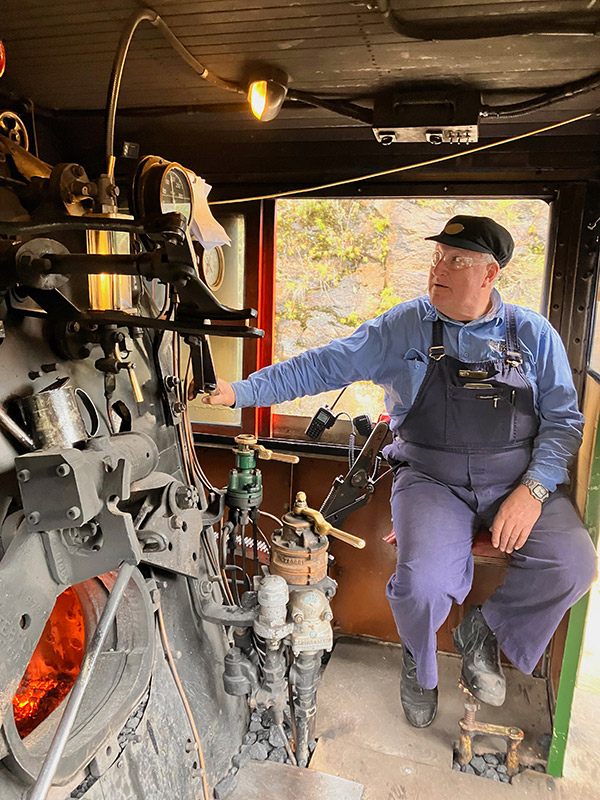
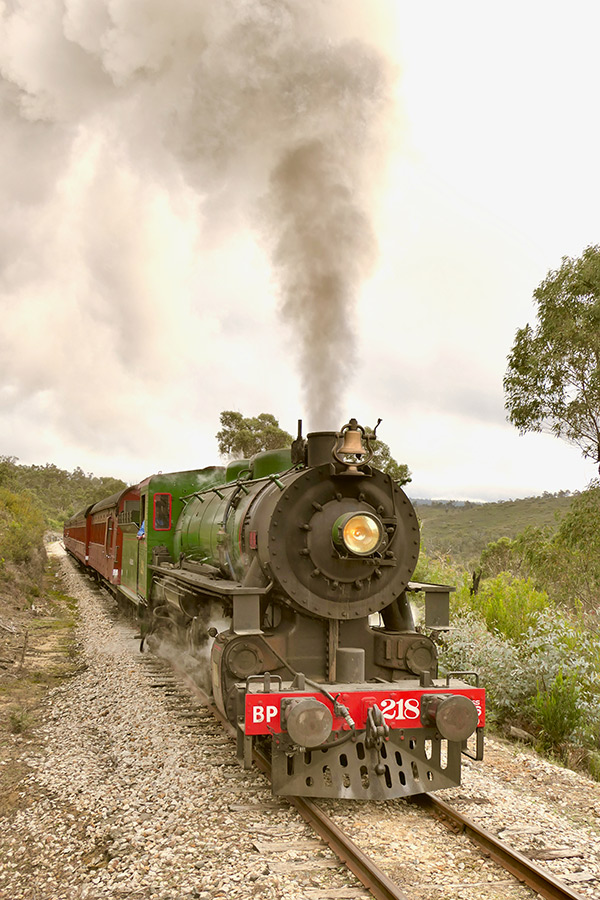
By the turn of the century, the bottlenecks were becoming too much and something had to give. The idea of boring a massive tunnel through the mountains was discarded due to costs. Instead, work commenced on the Ten Tunnels Deviation – a new route that would skirt much of the original track’s headaches without sacrificing the grandeur of the journey. When the new track was completed in 1910, it marked the death of Ziggy.
But the spirit of that old track lives on in the volunteers who have brought it back to life, inviting admiration and nostalgia for a time when the railway was king. Its popularity is seen today in a station chockers with vintage train enthusiasts and we’re reminded that Australia’s railroads often faced colossal and untamed landscapes between point A and B. Fortunately for us, there are still those wanting to preserve this heritage.
Lithgow was the site of Australia’s first commercially viable oil shale mining and boasts the iconic Lithgow Blast Furnace ruins (highly recommended), which date back to the early 1900s.
Nestled on the western edge of the Blue Mountains, Lithgow offers breathtaking natural landscapes. The area is surrounded by national parks, including the Wollemi, Gardens of Stone, and Blue Mountains national parks, making it ideal for outdoor enthusiasts.
One of Lithgow’s most magical attractions is an abandoned railway tunnel that has been transformed into a natural wonder. As darkness falls, the tunnel’s walls come alive with the ethereal glow of thousands of bioluminescent glow worms, creating a surreal experience. Unfortunately, it wasn’t open on our visit due to recent heavy rain.
Lithgow boasts a growing food and drink scene, with hip cafés, restaurants, and breweries. Visitors can enjoy local produce and craft beers, making it an excellent spot for culinary exploration. Even the old Zig Zag Brewery will be reopening soon.